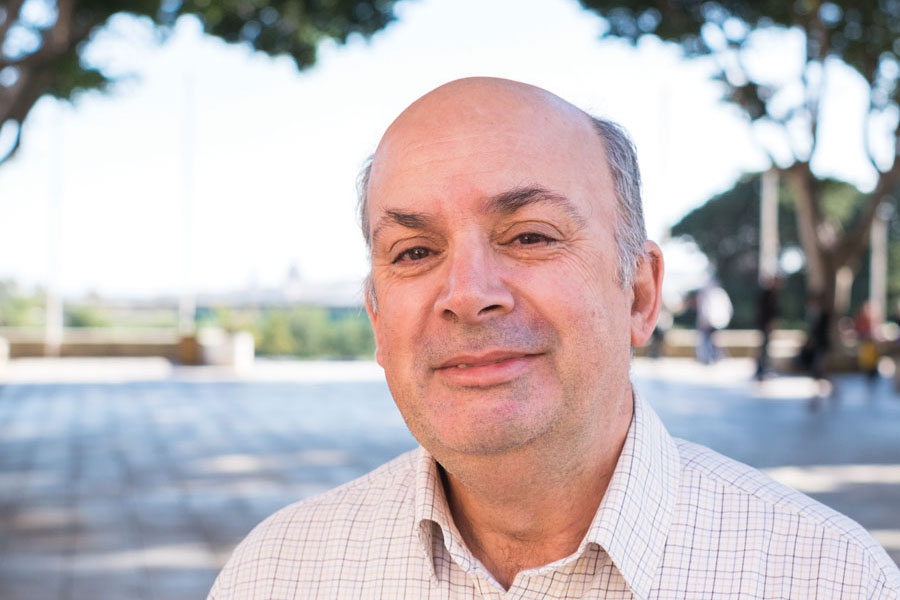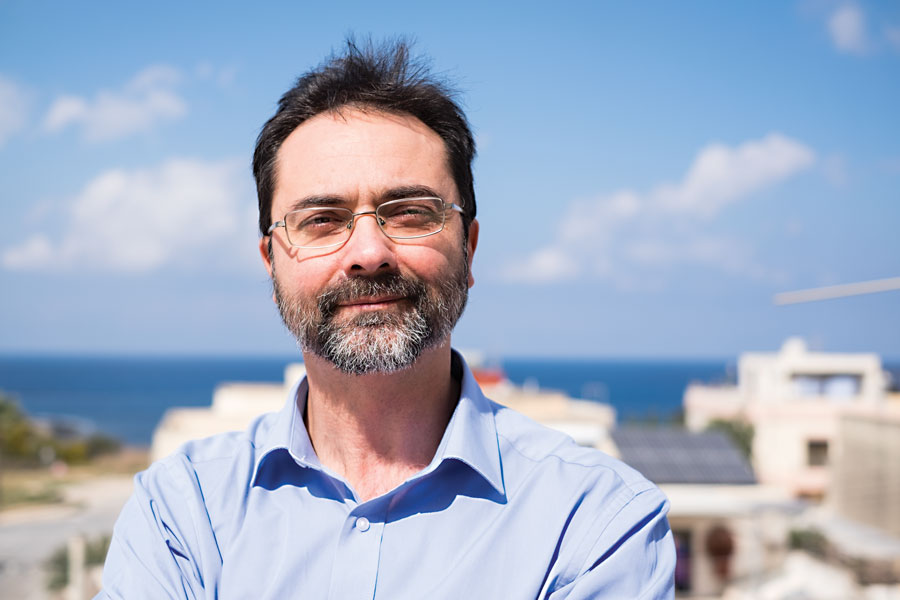Post-truth populism has secured a powerful mandate in the United States of America. This reflects a trend that extends through the world’s liberal democracies and will invite global imitation. In this opinion piece, Jonathan Firbank describes how post-truth populism works, why it works, and why the American election might show us how to fight it.
Continue readingGoing Viral: The Rise of Virtual Influencers
Virtual influencers are computer-generated avatars that have been dominating social media, and they are reshaping the way we absorb content. Completely realistic and entirely digital, virtual influencers are changing the game in social media and marketing. With breakthroughs and challenges, the AI sector is transforming online engagement and bringing fresh innovations to our world.
Continue readingTrue Happiness
What kinds of happiness are there, and what kinds of happiness should we prioritise? Jonathan Firbank explores Masahiro Morioka’s ‘happiness drug’ thought experiment in the face of an increasingly medicated world.
Continue readingOf robots and rights
Author: Dr Jackie Mallia

In 2019, Malta will create a National Strategy for Artificial Intelligence or ‘AI’, in order to establish the Country as a hub for investment in AI. Speaking about AI at the Delta Summit late last year, Prime Minister Dr Joseph Muscat stated that ‘not only can we not stop change, but we have to embrace it with anticipation since it provides society with huge opportunities.’ He followed up with similar declarations at the Malta Innovation Summit, also observing that in the future ‘we may reach a stage where robots may be given rights under the law.’
This latter statement seemed to generate unease. Reading some of the negative comments posted online, I realised that for many, the mention of ‘AI’ still conjures up images of the Terminator movies.
Although a machine possessing self-awareness, sentience, and consciousness may take decades to materialise, AI is already pervasive in our lives. Many of us make use of intelligent assistants, be it Amazon’s Alexa or Apple’s Siri. Others use Google Nest to adjust their home’s temperature. Then there are the millions with Netflix accounts whose content is ranked in order of assumed preference. All of it is convenient and all of it is due to AI. But some of the skepticism towards the technology may be warranted. High-profile failures include Google Home Minis allegedly sending their owners’ secretly recorded audio to Google. Facebook’s chatbots, Alice and Bob, developed their own language to conduct private conversations, leading to their shutdown. In addition, there were two well-documented fatal autonomous car accidents in 2018.
AI is still evolving, but at the same time, it is becoming ubiquitous, which leads us to some very important questions. What is happening to the data that such systems are collecting about us? What decisions are the devices taking, and to what extent are we even aware of them? Do we have a right to know the basis upon which such decisions are taken? If a machine’s ‘intelligence’ is based on big data being fed to it in an automated manner, how do we ensure it remains free from bias? Can decisions taken by a machine be explained in a court of law? Who is liable?
A focus on the regulation of AI is not misplaced. The issues are real and present. But the answer is not to turn away from innovation. Progress will happen whether we want it to or not. Yes, we need ‘to embrace it,’ as Muscat stated, but we must do so in the most responsible way possible through appropriate strategy and optimal legislation.
Dr Jackie Mallia is a lawyer specialising in Artificial Intelligence and a member of the Government of Malta’s AI Taskforce
Who owns you?
One fifth of human genes have already been claimed as US Intellectual Property. But should anyone own our genes? And what happens when gene ownership can drastically prevent the advancement of life-saving cures?
The US Patent Office’s most controversial patents are on BRCA1 and BRCA2, both linked to the high risks of ovarian and breast cancer. They are now owned by Myriad Genetic Laboratories. In 1996, Myriad Genetics developed and began marketing a predictive test for the presence of possible cancer-causing mutations: the ‘BRCAnalysis’ test. The price of the test was US$3,000 but the company promised that it would eventually drop the price to US$300. This never happened because its patent holder had the right to stop any other party from duplicating the patented sequences. This single test accounted for over 80% of Myriad Genetics’ multibillion dollar business.
In 2009, the American Civil Liberties Union (ACLU) decided to challenge the patenting of human genes on legal grounds. The ACLU was the representative of 20 medial organisations, geneticists, women’s health groups, and patients unable to be screened due to the prohibitive patents. The ACLU’s position was that Myriad’s patents violated the patent law on the issue of patent-eligibility.
The case went before the Supreme Court. By 3 June, 2013 it was declared that the Myriad patents were invalid because they did not create or alter any of the genetic information encoded in the BRCA1 and BRCA2 genes. The location and order of the nucleotides existed in nature before Myriad found them. The company simply discovered what was already there and did not create anything new.
There is no worldwide consensus on whether parts of the human genome should be granted intellectual property protection. The Myriad patents should alert us to the injustice of having a pharmaceutical company make money out of cancer predictive tests that could cost 10 times less than what is charged. The same patents stifled diagnostic testing and research that could have led to cures as well as limiting women’s options regarding their medical care in Malta as in all other parts of the world. There are various international and regional agreements that have described the human genome as being part of humanity’s ‘common heritage’, including the 1998 UN Declaration on the Human Genome and Human Rights. The Myriad patents controversy has shown that gene patenting does not work to stimulate more research—one of the prime arguments Big Pharma uses. It is time to explore other avenues that will both promote scientific progress and technological development but at the same time protect the special nature of human genes that make us who we are. No one should own our genes—they should be exploited in the interest of everyone.
Written by: Dr Jean Buttigieg
The enduring appeal of Star Trek
I am often asked why Star Trek appeals to me and so many others. For me, the answer lies with its founder, the humanist Gene Roddenberry. Humanism is defined as ‘a faith in and commitment to shared humanity’.
Secular Humanism is not an ideology or fixed ethical system but a collection of general guidelines that should allow humanity to increase its knowledge to further its collective wellbeing. The philosophy seeks to establish moral principles that are independent of any mystical sources, though they remain conducive to the freedom and wellbeing of the populace based on ethical reasoning. The term Secular Humanism explicitly rejects the supernatural and the primacy of moral codes based solely on religious convictions. Secular Humanist philosophy offers an alternative to more traditional ethical and moral concepts.

Humanism is rooted in the oeuvre of the philosopher John Locke, who asserted that everyone has the natural right to ‘life, liberty, and property’ as well as in the work of philosopher Adam Smith, who addressed the importance of private property and free trade.
Star Trek’s brand of secular Humanism appeals to all since no deities are invoked. When people invoke God or gods this almost inevitably precipitates arguments on which religion is correct or true. Such conflicts are a principal source of past, present, and future contention.
Television aliens can be read as ciphers and metaphors for humanity. Humanism could be interpreted as a belief system that is a useful point of reference to explore human differences. The medium of science fiction combines these two, leading to open dialogue and self-insight to bridge the artificial gulfs that separate us as individuals and as races.
The Star Trek universe continues to offer ‘an alternative, liberal future that not only has eliminated poverty, racism, sexism, jingoism, and colonialism, but also challenges contemporary society to rectify such unacceptable states of affair’.
Star Trek, like other science fiction, has an unshakeable ‘belief in the liberating power of the imagination’ to optimistically create utopian worlds that help us realise ‘our limitations, and thereby to move beyond them toward a more inclusive awareness’ of humanity’s potential.
Literature will break your heart
Dr David Vella interviews Dr James Corby to find out how literature can help you face tragedy in your life. Illustrations by Sonya Hallett.
Continue reading






